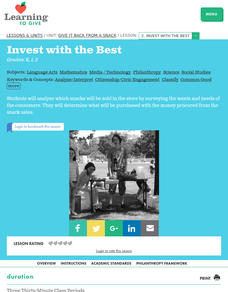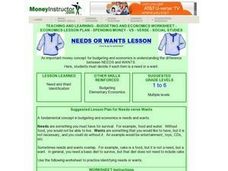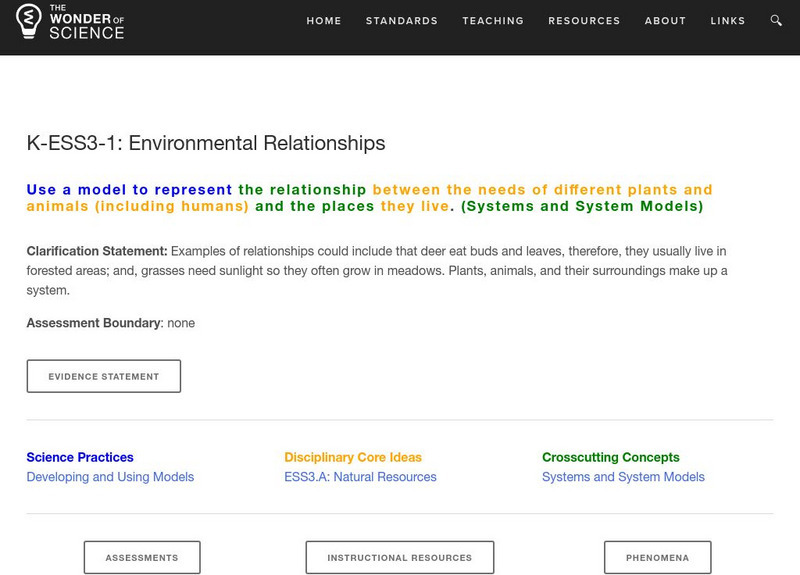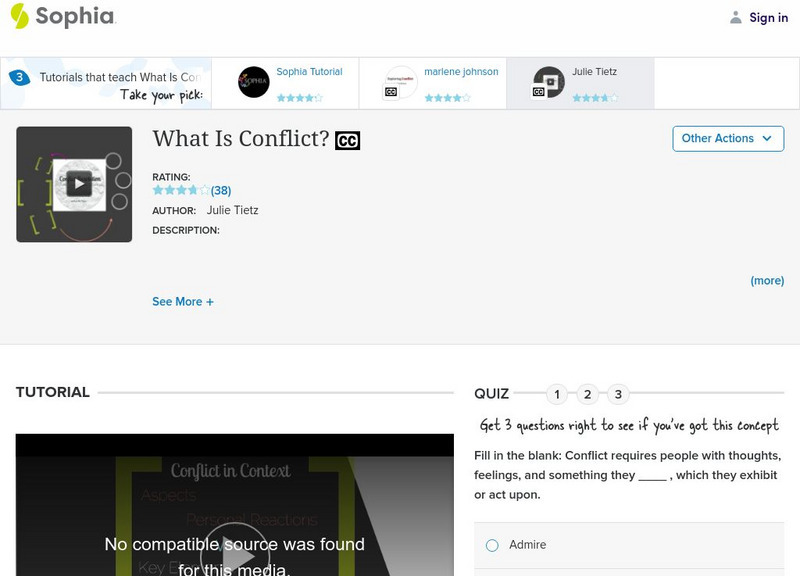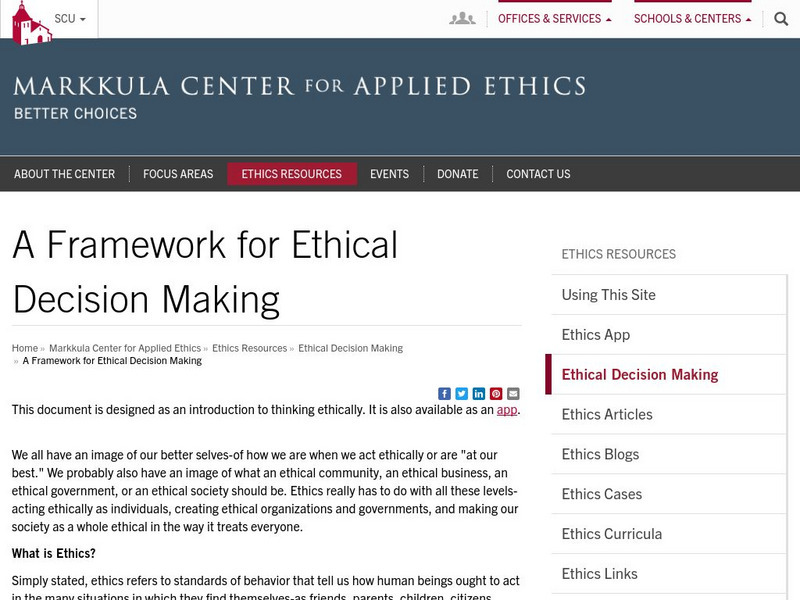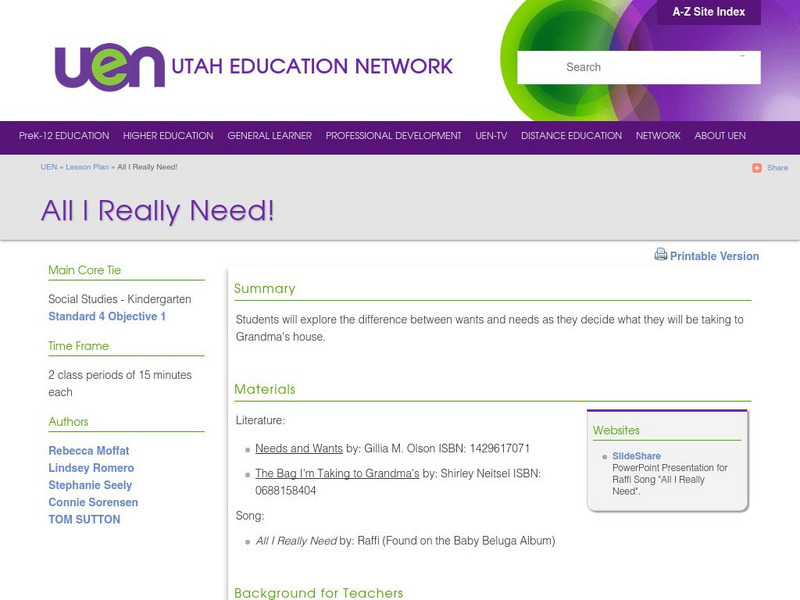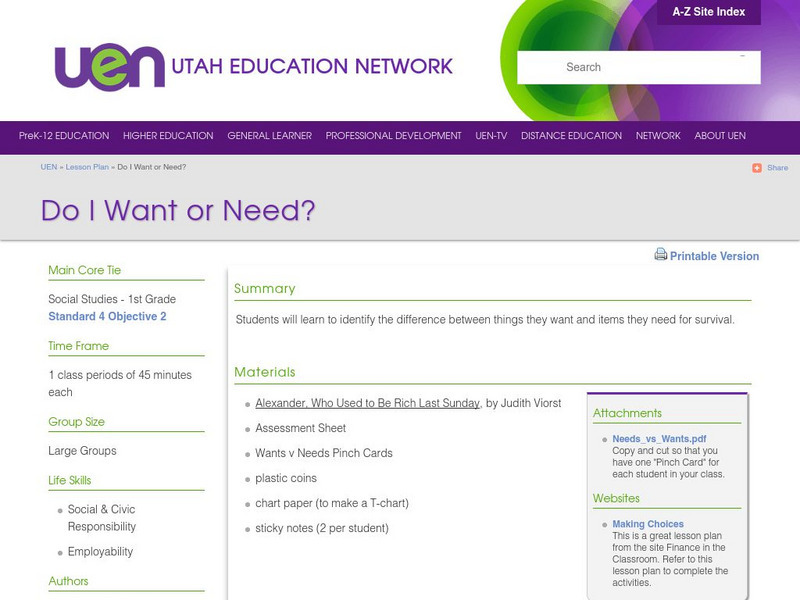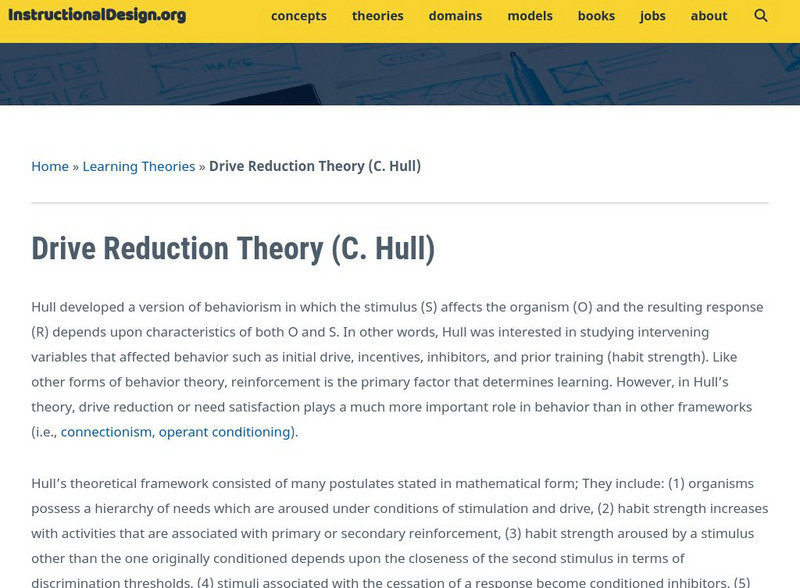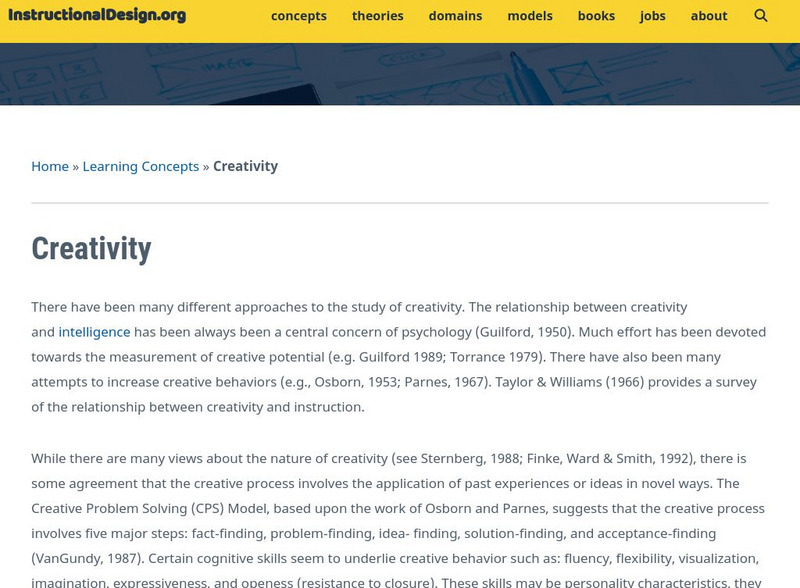Curated OER
What Do You Need?
Students discover the difference between needs and wants. Using pictures, they develop a list of the needs and wants shown in each. They answer and discuss the answers to the questions as a class to end the lesson.
Curated OER
Give It Back From a Snack Lesson 2: Invest With the Best
Students survey schoolmate as to what type of snacks they would prefer to purchase. They graph the results and apply them to planning a classroom snack sale while examining what wants, needs, and consumers are.
Curated OER
Learning to Live Responsibly Within One's Personal Resources
Students explore survival techniques in the light of their own values and personal situations. The differences between needs and wants and how consumerism effects the environment forms the main focus of this three lessons unit.
Curated OER
Geo Jammin' By DeSign - Day 2, Lesson 10: Wanna Trade?
Students listen to a book that facilitates a discussion of trade and things that people need. They determine what things might be traded.
Curated OER
Needs or Wants
Students explore which items are needs and wants and explore basic budgeting principles.
The Wonder of Science
The Wonder of Science: K Ess3 1: Environmental Relationships
This NSTA vetted source includes resources to teach about the relationship between the needs of different plants and animals and the places they live. Included are assessment ideas, videos, examples, lesson plans, and photos of student...
The Wonder of Science
The Wonder of Science: K Ess2 2: Environmental Change
This NSTA vetted source includes resources to teach how plants and animals (including humans) can change the environment to meet their needs. Included are assessment ideas, videos, examples, lesson plans, and photos of student work.
Scholastic
Scholastic: Adventures in Math: Lesson 2: Plans and Goals
Planning is essential to financial success. In this lesson, students will define the word "budget" and identify the three key components associated with creating a budget, evaluate wants versus needs, and demonstrate an understanding of...
Scholastic
Scholastic: Adventures in Math: Lesson 3: Money in Our Community
Lesson focuses on how and why money circulated within our community. Being able to discern the difference between things we need and things we want is one of the foundational concepts for using money wisely. Goods and services are things...
California State University
California State University: Curiosity and Exploration
California State University student research into the psychological theories of curiosity and what motivates people to do what they do.
Library of Congress
Loc: Poetry 180: Sister Cat
This poem describes how sometimes needs cannot be filled. A cat is used to exemplify this concept.
Robert Schenk, PhD
Cyber Economics: Supply and Demand Overview
This is a site from the St. Joseph's College with an overview of the supply and demand model. It is actually the first page of a lesson on supply and demand complete with links to more in-depth discussions including graphs and charts...
Other
Mcwdn: Needs and Wants Quiz
Answer five questions about needs and wants to test knowledge about this basic economic principle.
Sophia Learning
Sophia: What Is Conflict? Common and Practical Definitions: Lesson 2
At the end of this tutorial, the learner will understand in a general sense the definition of conflict. It is 2 of 5 in the series titled "What is Conflict? Common and Practical Definitions."
Other
Santa Clara Univ.: Framework for Ethical Decision Making
A discussion on how to recognize a moral issue and how to make decisions that are ethically sound.
CPALMS
Florida State University Cpalms: Florida Students: Where Have All the Scrub Jays Gone?
Learn how organisms rely on one another but also compete with one another within the same ecosystem.
Utah Education Network
Uen: Lesson Plan: All I Really Need!
Lesson that helps students understand the difference between needs and wants. Students discuss the story The Bag I'm Taking to Grandma's by Shirley Neitsel and then decide which items they need to take to grandma's house and which items...
Utah Education Network
Uen: Lesson Plan: Do I Want or Need?
Lesson that reinforces the difference between needs and wants as students discuss the book Alexander, Who Used to be Rich Last Sunday by Judith Viorst. Includes link to discussion questions.
Council for Economic Education
Econ Ed Link: Scarcity With the Lewis & Clark Expedition (Student Version)
Use this EconEdLink intermediate lesson to teach your students about the concept of scarcity. Allow students to use the interactive simulation of the Lewis and Clark Expedition to demonstrate their ability to make sound decisions in the...
Council for Economic Education
Econ Ed Link: No Extra Room on the Mayflower
Choose what to bring on a voyage. Space is scarce, so choices must be made about what to leave behind.
Other
Tip: Drive Reduction Theory
This site from the Theory Into Practice Websit provides scientific explanation of the drive reduction theory proposed by American psychologist Clark Hull. Good example and list of main principles.
Other
Instructional Design: Creativity
This article provides a short introduction into some of the psychological views concerning curiosity. It provides a long list of references for further research.
Other
Theory Into Practice: Cognitive Dissonance
This site from the Theory Into Practice website provides a simple and straitforward explaination of the Cognitive Dissonance theory. The page gives a good example of the theory in action and references for further information.
Curated OER
Social Studies for Kids: Needs vs. Wants: Basic Economics
This website examines the difference between needs and wants, offers the chance for the student to make a budget, and discusses personal finance with an emphasis on income and expenses.



